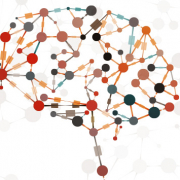Understanding Alzheimer’s
Modern advances in genomics are revealing new links between many of our genes and the chance of developing the condition
Results from the largest ever genomic study of Alzheimer’s disease have identified 42 new genes associated with an increased chance of developing the condition.
The study, published in Nature Genetics, was an international collaboration between eight research centres, including the Dementia Research Institute at Cardiff University. It aimed to understand the genetics underlying Alzheimer’s disease by finding new genes associated with the condition.
“This is a landmark study in the field of Alzheimer’s research and is the culmination of 30 years’ work. Genetics has and will continue to help us identify specific disease mechanisms which we can target therapeutically,” said Dementia Research Institute director, Professor Julie Williams.
“This piece of work is a major leap forward in our mission to understand Alzheimer’s, and ultimately produce several treatments needed to delay or prevent the disease,” she added.
About the disease
Alzheimer’s disease is a neurodegenerative condition and is the most common form of dementia.
The greatest risk factor for developing Alzheimer’s is age, meaning that as advances in other fields of medicine allow people to live longer, the number of people who develop Alzheimer’s affects will grow. Everyone can reduce their risk by following guidance around not smoking, taking regular exercise and eating a balanced diet.
There is also a strong genetic component, however, estimated at between 60–80% of disease risk, which can contribute to whether a person is affected by the condition and when it occurs.
Finding associated genes
The genome-wide-association study looked for differences between whole genomes from over 100,000 people with Alzheimer’s disease and over 600,000 healthy people. The study found 75 areas of the genome associated with developing the condition, 42 of which were not previously known.
“This study more than doubles the number of identified genes influencing risk for the more common form of Alzheimer’s disease,” said Dr Rebecca Simms from Cardiff University.
“It provides exciting new targets for therapeutic intervention and advances our ability to develop algorithms to predict who will develop Alzheimer’s in later life.”
New pathways
Some of the genes identified are associated with biological pathways that are already subjects of research – notably amyloid-β and tau, two proteins that build up in brain cells of affected people. It also supported previous research looking at the role of microglia: a brain-specific type of nerve cell responsible for eliminating toxic substances. It appears that when microglia are less efficient, the disease can accelerate.
Thirty-one of the genes were not associated with any pathway that is currently linked to Alzheimer’s disease, however, offering new avenues of investigation.
One of the newly discovered associations is a signalling pathway associated with inflammation and the immune system. TNF-alpha is a cytokine signalling molecule associated with type 2 diabetes, inflammatory bowel disease and rheumatoid arthritis.
Drugs that target TNF-alpha have already been developed and are used in the treatment of rheumatoid arthritis, and, in severe cases, for Crohn’s disease and psoriasis.
“The results support our growing knowledge that Alzheimer’s disease is an extremely complex condition, with multiple triggers, biological pathways and cell types involved in its development,” said Professor Williams.
“We are unmasking more of these causes year on year, and this also provides greater opportunities from which to develop therapeutics.”
–









